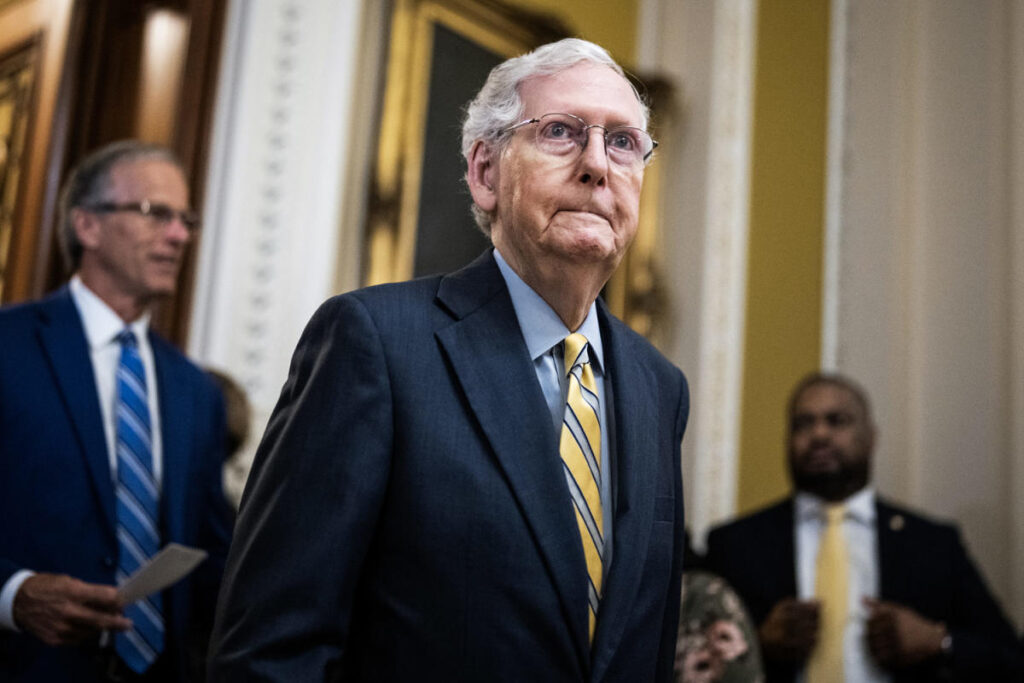In a striking juxtaposition, Senate Minority Leader Mitch McConnell has publicly endorsed Donald Trump for the upcoming presidential election, despite the severe criticism he leveled against Trump following the devastating events of January 6, 2021. In his forthcoming book titled “The Price of Power,” journalist Michael Tackett reveals McConnell’s candid views, wherein he labeled Trump as a “despicable human being,” “stupid,” and “ill-tempered.” Following Trump’s defeat in the 2020 presidential race, McConnell expressed a sense of urgency among Republicans for his tenure to conclude, indicating that many within the party were quite ready for a change. He articulated strong feelings about Trump’s role in inciting the Capitol riot and criticized his behavior and its implications not only for the nation but also for the party’s electoral aspirations.
Tackett’s book is distinguished not only by the candid observations of McConnell but also by the methodology of compiling nearly thirty years’ worth of oral histories alongside extensive interviews and records. Such depth provides readers insight into McConnell’s perspective, including his disillusionment with Trump post-2020 election, especially as the former president’s actions threatened to undermine vital Covid relief negotiations. McConnell’s facade of loyalty to Trump serves as a stark contrast to his vocal reservations about the latter’s ability to govern effectively. Notably, McConnell expressed a belief that Trump’s conduct might have contributed to the loss of two crucial Senate seats in Georgia, thereby costing Republicans their Senate majority.
In the aftermath of the January 6 insurrection, McConnell’s sentiments were steeped in both sorrow and frustration. His depiction of the rioters captured a broader critique of Trump, whom he referred to as “narcissistic” and wholly unfit for office. These sentiments culminated in an emotional moment with his staff after the Capitol attack, where he expressed deep appreciation for their courage during a terrifying ordeal. Contradictory to his earlier criticisms, McConnell later voted to acquit Trump in the impeachment trial, grappling with the complicated question of holding a former president accountable, showcasing the internal conflict between party loyalty and personal convictions.
Tackett highlights that while McConnell holds a firm stance on his beliefs about Trump, he still navigated the political landscape with calculating pragmatism. His endorsement of Trump for the 2024 election signals a re-alignment of interests within the Republican Party. McConnell’s assertions that he always intended to support the eventual GOP nominee underline the challenges faced by party leaders in reconciling personal grievances with political realities. His endorsement, despite previous disdain for Trump, poses questions about the implications for the Republican party and its future directions.
Simultaneously, the book’s release just ahead of the election could potentially complicate Trump’s campaign, particularly in the wake of McConnell’s sharply critical remarks. The contrasting timeline of McConnell’s previous critiques and his recent endorsement will likely provoke discussions among Republican voters and political analysts alike regarding the authenticity and durability of party alignments. As the election approaches, the profound emotional and ideological rifts within the GOP raise concerns about unity and strategy in a highly polarized environment.
Ultimately, McConnell’s complicated relationship with Trump embodies a broader narrative within contemporary Republican politics, revealing the tensions between long-standing institutional practices and the emergent populism that Trump represents. “The Price of Power” serves as a critical historical document, providing insights into the dynamics of leadership, loyalty, and the ever-shifting landscape of American political alliances. As the election nears, it remains to be seen how these revelations will influence voter sentiment and the strategic maneuvering of the Republican Party as it seeks to navigate the complex legacy of Trump’s presidency while competing in a competitive electoral arena.

